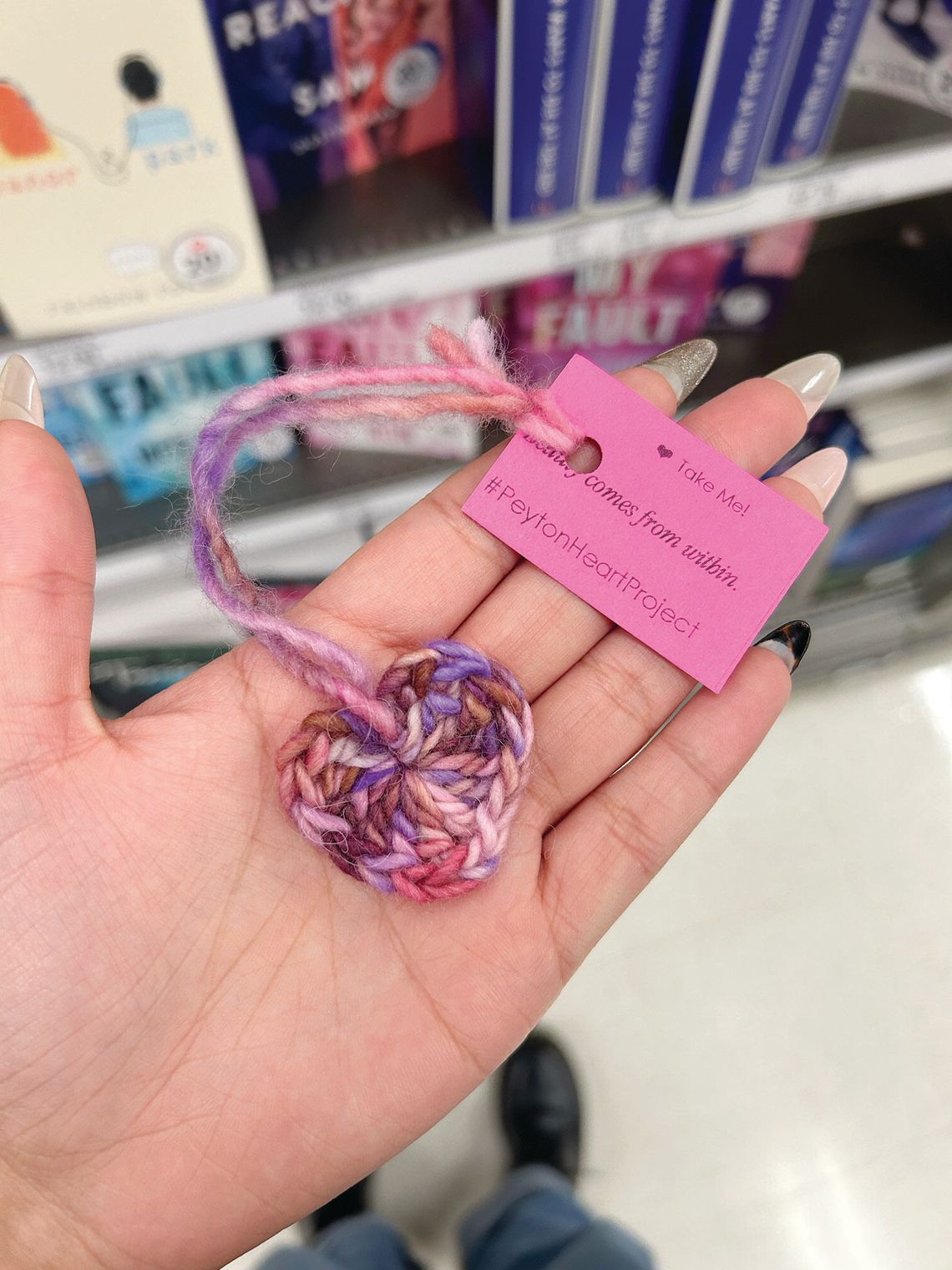DRIPPING SPRINGS — Following the death of his 13-year-old son, David James made a promise to himself that it wouldn’t be in vain. So, when two women approached him about starting a nonprofit in honor of his son, he jumped at the opportunity.
Peyton James was an imaginative and creative young boy, said James, adding that he was a lover of anime and manga. Born prematurely, he received pure oxygen at birth, which resulted in his teeth being discolored. This, along with his red hair and glasses, led to teasing and, eventually, bullying at school.

PHOTO BY BRITTANY KELLEY
Although James and Peyton’s mother took what many would deem the necessary steps, such as taking him to see a doctor, his son lost his battle to mental health. In October 2014, James received news that would change his life: his son had attempted suicide. He died days later.
“After Peyton … I wanted him to be remembered. I didn’t want his death to be in vain and I was hoping that somehow, some way, we could use his story to help others,” James said.
The summer after Peyton died, James recalled posting to social media a lot about his son to bring awareness, when two women — Sue Harris-Reynolds and Jill Kubin — approached him about donating knit hats and gloves in his son’s name for another nonprofit. The result was the most donations the organization had ever received, prompting the two women to ask James about beginning the Peyton Heart Project in June 2015.
The organization is a nonprofit with the mission to invite others to remember a life lost to suicide and remind them that they matter through crochet hearts.
The hearts are volunteer-made and tagged with inspirational messages, such as “believe in the kindness of others,” “be present, for this moment is a gift,” “even a small step forward is a victory” and more. Afterwards, community members are encouraged to leave the hearts in places for others to find.
“I’ll leave them in public places. I always tell people, if you’re struggling, there’s that sign you’ve been looking for that somebody out there cares. For people battling mental health issues also, often, they think that nobody cares. They go through it alone; they don’t reach out and they struggle … For so many people struggling, sometimes [finding the heart] can be the difference,” explained James.
The hearts not only remind others that there is a community out there that cares for them, he continued, but it can also provide a reprieve for those who have lost a loved one to suicide, as well.

Volunteers throughout the nation make crochet hearts and tag them. Pictured, a crochet heart tagged “believe in miracles” from the nonprofit is placed in a book at Target in San Marcos.
James noted that he has spoken with people who have donated hearts or placed them around, who have explained that it brought them comfort: “Nobody wants their loved one to be forgotten [and] people want to help. Sometimes, it could be therapeutic for them.”
The Peyton Heart Project both receives hearts and ships them out across the nation to be placed.
“The tags are available on our website, along with instructions on how to print them, how to go about distributing them, etc.,” he said. “The tags have been translated into multiple languages, so depending on where you want to take them, you can find different places to leave them and everything. Sometimes, we have people that will take them on vacation with them and leave them in various cities or states or countries, even.”
In addition to the crochet hearts, James advocates for mental health and suicide awareness when given the opportunity. Most recently, he spoke with the American Foundation of Suicide Prevention and the National Alliance on Mental Health at the Texas Capitol.
As someone who lost his son to suicide, James emphasized the importance of mental health awareness and removing the stigma: “For a long time, it was an illness. Now, it’s mental health. People are actually starting to realize that mental health is just as important, if not, in some ways, more important than physical health.”
“Talk to your kid, talk to your friend, talk to your family member and say, ‘Is everything all right? Be open, be honest. We’re here to help you. We’re not here to judge,’” said James. “The key is: listen, don’t interrupt, don’t interject your own experiences. Let the person talk. If you keep interrupting and telling [them], ‘Oh, well, listen to what happened to me.’ It diminishes what that person’s going through.”
Recognizing that in some parts of society, mental health is considered taboo, James stated that this is even more reason to normalize these discussions and let the community know that there is help available.
For those wanting to aid in the nonprofits mission, whether by tagging — which can also be used as community service hours for students — donating hearts or placing them, visit www.thepeytonheartproject.org.
If you or someone you know is struggling with mental health or in crisis, help is available. Call or text 988 or chat at 988lifeline.org.










